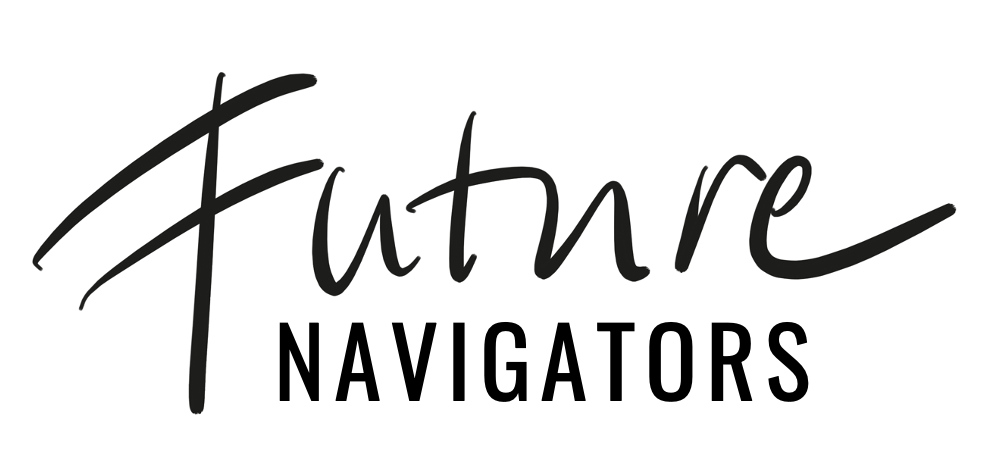Are you ready to challenge yourself?

When we were younger, we were taught that our brains stopped developing at the age of 25. It was simply believed that the brain had a static structure and that, over time, brain cells died and could not be renewed. Today, we know better.
The brain has actually shown to be ‘plastic’ and able to reorganise itself at both structural and functional levels. Brain plasticity, or neuroplasticity, simply encompasses its ability to change and adapt throughout life based on experiences, learning and environmental influences.
This dynamic property of the brain has enormous implications for the view of human potential and the possibility of personal development. We can also use this knowledge in leadership development.
This is especially crucial in today's dynamic and fast-moving business environment, where leadership faces a range of new challenges and demands.
In fact, to cope with the current poly-crisis, we leaders need to develop a deeper understanding of ourselves, others, and the world we live in. The leadership we need is wiser, more inclusive, holistic, and mature, with a capacity to lead complex change and transformation towards a better future.
Unfortunately, research in adult development shows that only a tiny proportion of today's leaders and managers currently possess those qualities. A large proportion are stuck in a focus on short-term goals, performance, efficiency, and control (i.e. a 'business as usual' mindset). Many are, however, beginning to question how effective this really is and are looking for new answers.
Vertical Leadership Development
Vertical leadership development is a research area at the intersection of developmental psychology, organisational development, and leadership development. We have explored this area extensively and use related methods to help business leaders move beyond business as usual, build Better Business, and co-create a better future.
The field, like all other research areas, is full of theories, but has a number of common factors. Above all, the view of an ongoing development in human potential and that adult development takes place in a certain order.
It is not only the plasticity of the brain that is enabling this development, but also the development of our self-awareness, our EQ and an expanded consciousness, and more.
The term ‘vertical’ comes from the realisation that adult development can be seen as a journey along a scale of levels of consciousness. These levels represent not only an increase in the individual's capability to deal with complexity and perspective-taking but also a profound change in how an individual perceives themselves, others, and the world around them.
On this vertical scale of consciousness development, an individual can move from limited levels of consciousness (which, for instance, are characterised by low levels of self-awareness) to more expanded levels of consciousness, which are more self-aware, inclusive, flexible, and aware of different perspectives, complexity and context.
Importantly, we need to inhabit these expanded levels of consciousness to better lead in a VUCA world (volatile, uncertain, complex, and ambiguous).
Ready to challenge yourself?
Just as when we train our fitness and strength, personal development requires us to truly challenge ourselves. It can be uncomfortable, and it takes time. In fact, personal development is a lifelong journey. Becoming a wiser, more mature, and sustainable leader is, however, well worth it!
We use a well-established method for accelerating your Vertical Leadership Development called StageSHIFT.
Feel free to contact us to explore if and when you feel ready to challenge yourself.
Learn about how we can help >>
Learn more
Leading researchers in the field of adult development are Robert Kegan, Susanne Cook-Greuter, Bill Torbert, Jane Lovinger and Jonathan Reams. Otto Sharmer (Theory U) and Ken Wilbur (Integral Theory) have also contributed to the current level of understanding. Here are a few words on the key contributions of these pioneers (with relevant links):
Jane Loevinger was a pioneer in the study of ego development and mature perspectives. Her research and models have contributed to the understanding of how individuals develop their consciousness and identity over time. Loevinger's work has had a major impact on the understanding of personal development and its relevance to leadership and organisational change.
Robert Kegan is a leading authority on vertical leadership development. He has developed the theory of subjective growth of consciousness, which describes different stages of consciousness and identity development in individuals. Through his works, including ‘The Evolving Self’ and ‘Immunity to Change’, Kegan has explored how people can grow and develop by understanding and navigating through different stages of development.
Bill Torbert is known for his work with Action Inquiry. He has explored how leaders can develop by engaging in reflexive processes and continuously learning from their experiences. Through works such as ‘Action Inquiry: The Secret of Timely and Transforming Leadership’, Torbert has emphasised the importance of integrating action and reflection for personal and organisational development.
Terri O'Fallon is a researcher who has made significant contributions through her work exploring and mapping developmental stages and levels of consciousness in individuals. She has developed several models and instruments, including the STAGES model. Through her research and practice, O'Fallon has contributed to a deeper understanding of vertical leadership development and its applications in leadership training and organisational change.
Susanne Cook-Greuter has done pioneering research in the area of ego development and mature perspectives. Through her models, including The Leadership Development Framework, she has contributed to the understanding of how individuals can develop towards higher levels of consciousness and more comprehensive perspectives. Her work has had a major impact on the design of leadership development programmes and interventions.
Jonathan Reams is known for his work in the field of vertical development and complexity science. He has explored how leaders can develop the ability to navigate through complexity and uncertainty by integrating principles of systems thinking and self-reflection. Through his work, Reams has contributed to the understanding of how vertical development can be applied to leadership practice and organisational change.
Otto Scharmer is best known for his Theory U, which offers an in-depth approach to understanding change processes at both individual and collective levels. By going through different phases of discovery, deep understanding and manifestation, Theory U promotes a transformational journey rooted in personal and collective awareness. His works have inspired many to embrace a more holistic and conscious approach to leadership and change. Otto Scharmer has among other things long led a very popular open online course at MIT u-lab: Leading from the Emerging Future.
Ken Wilber is best known for his integrative approach to consciousness and development, called Integral Theory. Through his theory, he has sought to integrate different perspectives and disciplines, including psychology, philosophy and spirituality, to understand the human experience in a holistic way. Wilber's work has inspired many to embrace a more comprehensive view of leadership and change that takes into account both the individual's inner journey and the external context.
The organisational and leadership developer Dr. Antoinette Braks, has specialised in moving from theory to reality and helping leaders accelerate their development through coaching methods. Through her research and practice, she has emphasised the importance of authentic leadership, compassion and conscious presence to create meaningful change and progress. Her work has inspired many to integrate vertical development principles into their leadership practices and organisational cultures.
